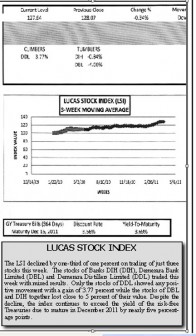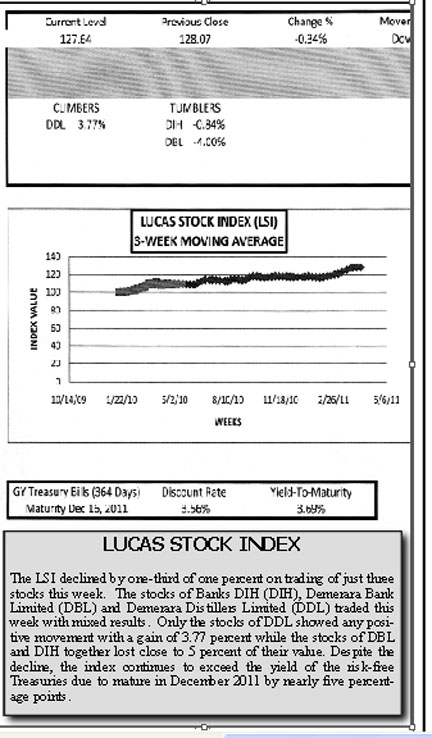Economic Independence
No fireworks have been set off. No carnival parties are taking place. No flags are being waved around wildly. No drums are beating incessantly. It seems as if one of the major global developments of this month is an occurrence that was expected to take place in the normal course of life. The development in reference is the decision last week by the five countries that are now described as the BRICS, Brazil, Russia, India, China and South Africa, to conduct their trade with each other in their own currencies.
Despite this seemingly inauspicious development, the decision of the five countries is much more important than it seems and has them emerging as the winning economic team in the global economic game of recovery, stability and growth currently taking place. Their decision now sets in train a move that could eventually see a reduced role in a serious way for the US dollar in world trade, something that China cannot do on its own and Russia failed to accomplish under its radical economic system of communism. Regarded as the alternative powers by some, these five countries are now putting the squeeze on global governance structures and showing the rest of the world what economic independence really looks like.
Strong Tremors

Jeopardy
With South Africa being the smallest and China being the largest, the economies of the five BRICS taken as a whole are as large as the five largest European countries. They account for over 18 percent of the world’s output, an amount slightly greater than that of the Western European countries that are members of the G8 who dictate how the world economic and financial system is currently managed. In addition, the countries of the BRICS hold 42 percent of the world’s population, over 42 percent of its reserves and account for close to one-fifth of world exports.
With the near collapse of the global financial system three years ago, the BRICS, like so many other countries, saw their hard earned economic progress placed in jeopardy and felt powerless to protect themselves.
Most of the authority for fixing the global financial problem was left in the hands of the very people who caused the problem. This did not sit well with the BRICS, considering that their success and stability were vital to the recovery of the rest of the world, especially those of leading economic powers whose economies were badly damaged.
Moreover, pressure on the US dollar, the principal settlement currency, comes from all quarters with destabilizing effects on assets and capital flows. Unlike times before, the BRICS understand the magnitude of the economic influence that they now possess and have chosen to use it to their advantage.
Overhaul
This development comes on the heels of the decision by China and Russia last year to eschew the US dollar in their bilateral trade, and similar arrangements by various others. It also follows the decision last November by the Executive Board of the International Monetary Fund (IMF) to overhaul its voting and management structures to accommodate the growing economic influence of BRIC countries. With the global economy sagging under its watch and the economies of some of its major players humbled, the IMF had little choice but to accede to the longstanding demands for change. Add the economic confusion in Europe and the major economies had no basis or moral standing on which to defend the existing management of a system that was actually being held together by the cooperation of the BRICS and other emerging economies.
Global Influence
The Executive Board of the IMF recommended that six percent of the quota shares be shifted from over-represented economies and others to the BRICS. The decision to reallocate the quota shares to the BRICS brings Brazil and India into the top ranks of the IMF. They will join the USA, Japan, UK, Germany, France, Italy, China and Russia to become the top 10 largest shareholders of the IMF. This gives them a chance to see a different basket of currencies making up the Special Drawing Rights (SDRs) and to have it play a greater role in international settlements. Brazil represents Guyana on the Executive Board of the IMF. With Brazil’s new position of global influence and as economic activities between the two countries pick up, it could mean that the Brazilian Real might be seen soon in trade settlements between Guyana and Brazil. The recommended changes of the IMF leave Africa and the Pacific from among the developing countries as the only regions without top players in the Fund. South Africa’s membership in the BRICS will some time to yield fruit for that continent.
Test
The IMF’s decisions will not take effect for another year. During the waiting period, the BRICS can continue to test the strength of their deepening economic bonds. China, which is under pressure to liberalize its currency, can put that currency to the test while waiting for its new position of influence in the IMF to materialize. Holding onto and intensifying its BRICS relationship reassures Russia of its chances of being accepted into the World Trade Organization (WTO) this year. The decision to trade in their own currency though shows a growing confidence in the strength and stability of their own financial regimes. It also indicates that the BRICS expect that the trade and capital flows between their countries to increase and suggest that they believe that there would be enough opportunity and benefit to increasingly save and invest the host country’s currency and not the dollar. If that view takes hold and prevails, the BRICS might get to determine which currency would become the next reserve currency.





